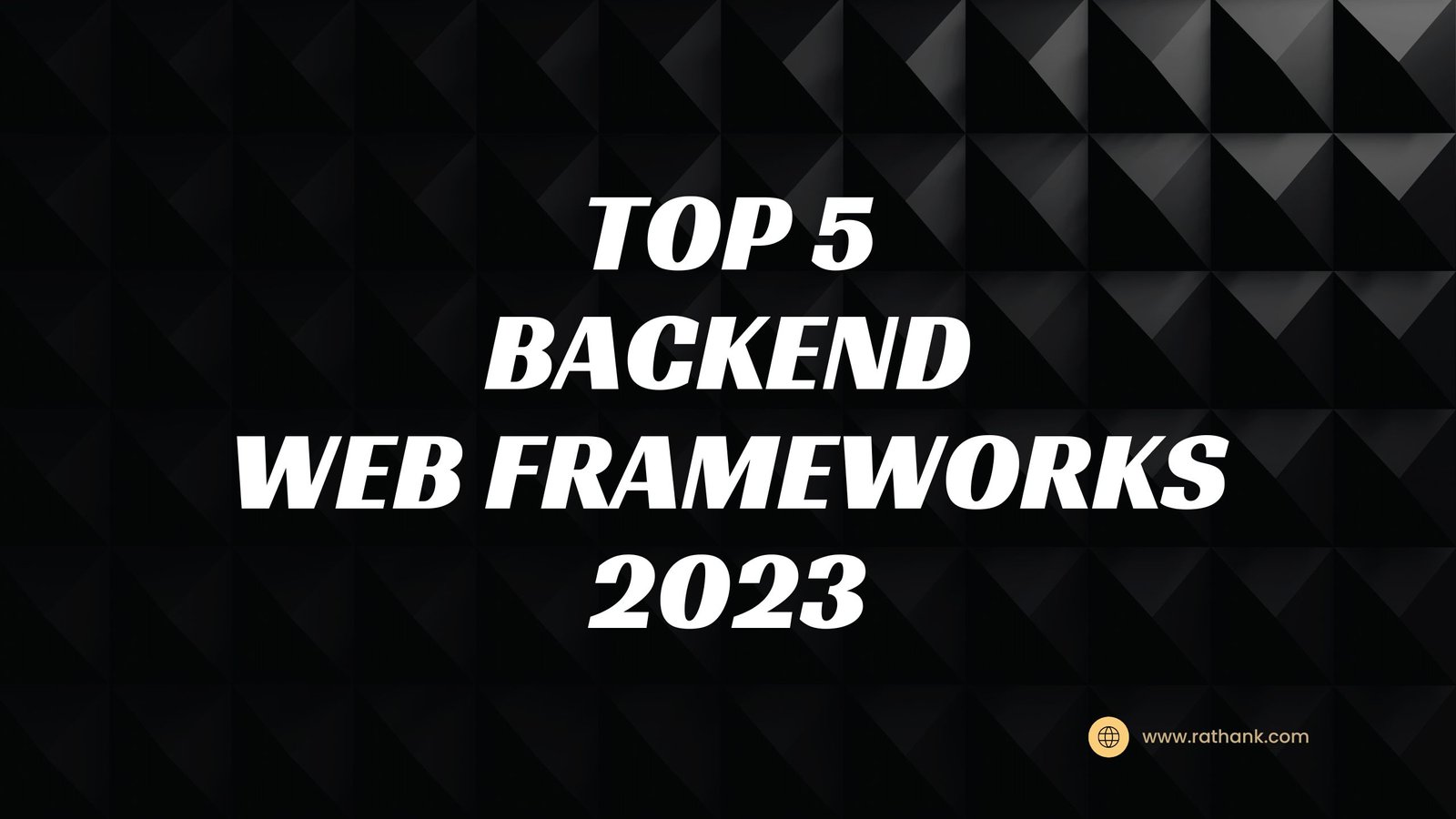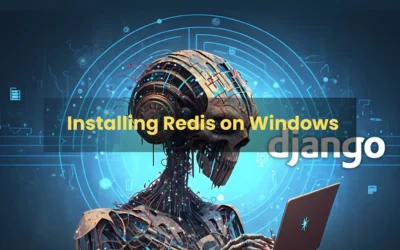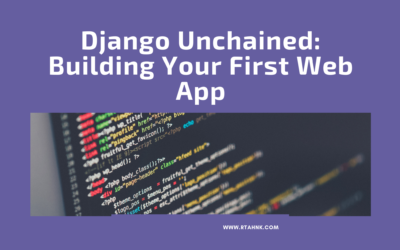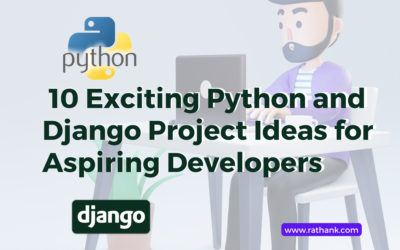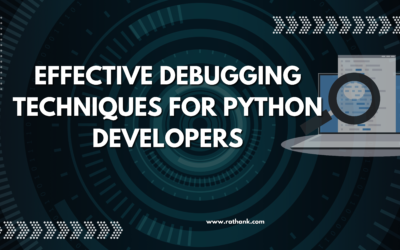Introduction:
Choosing the right backend web framework is crucial for building efficient and scalable web applications. With the rapidly evolving landscape of web development, it’s essential to stay updated with the latest trends and select a framework that meets your project’s specific requirements. In this blog post, we will explore the top 5 backend web frameworks that are likely to dominate the scene in 2023. Let’s dive in and discover the best options for your development needs.
5. Spring Boot: Java’s Powerhouse for Enterprise Applications
Java continues to be a preferred language for building robust enterprise-level applications, and Spring Boot has solidified its position as the go-to backend framework for Java developers. Spring Boot focuses on simplifying the development of stand-alone, production-grade Spring applications. It offers an opinionated approach to configuration, allowing developers to quickly build scalable systems with built-in support for dependency injection, data access, and web development.
4. Laravel: Elegant PHP Web Development
Laravel has been making waves in the PHP community with its elegant syntax and comprehensive feature set. Following the Model-View-Controller (MVC) pattern, Laravel simplifies web development tasks by offering routing, caching, and database migration support out of the box. With a large and vibrant community, Laravel provides extensive documentation and a wide range of packages to enhance your development workflow.
3. Express.js: Minimalistic Flexibility for Node.js
Node.js has gained immense popularity for its asynchronous, event-driven capabilities, and Express.js perfectly complements this ecosystem. Express.js is a minimalistic and flexible web framework that provides a straightforward API for building web applications and APIs. It allows developers to have granular control over their application’s architecture and is well-suited for creating lightweight, high-performance backend systems.
2. Ruby on Rails: Convention Over Configuration
Ruby on Rails, also known as Rails, is a highly popular framework for web application development. Emphasizing convention over configuration, Rails follows the Model-View-Controller (MVC) pattern. This approach allows developers to focus on building application logic without getting caught up in extensive configuration settings. Rails provide a smooth development experience, automating many repetitive tasks and offering an extensive ecosystem of gems for additional functionality.
1. Django: Building Robust Python Web Applications
Django has established itself as a powerhouse in backend web development. Known for its simplicity and scalability, Django follows the Model-View-Template (MVT) architecture, providing a solid foundation for building feature-rich applications. Its robust set of tools and features, including built-in authentication and ORM (Object-Relational Mapping), enable rapid development and efficient database management.
Why Django is at No. 1?
Django stands out as a unique framework due to its “batteries included” philosophy, providing a comprehensive set of tools and features out of the box. Its high-level approach, intuitive syntax, and modular design enable rapid development and increased productivity. Django’s robust Object-Relational Mapping (ORM) simplifies database operations, while its versatile architecture accommodates projects of any size. Additionally, Django prioritizes security with built-in measures against common vulnerabilities. The framework’s active community contributes to its continuous improvement and provides extensive documentation and resources. Django’s versatility, productivity, security, and community support make it a standout choice for web application development.
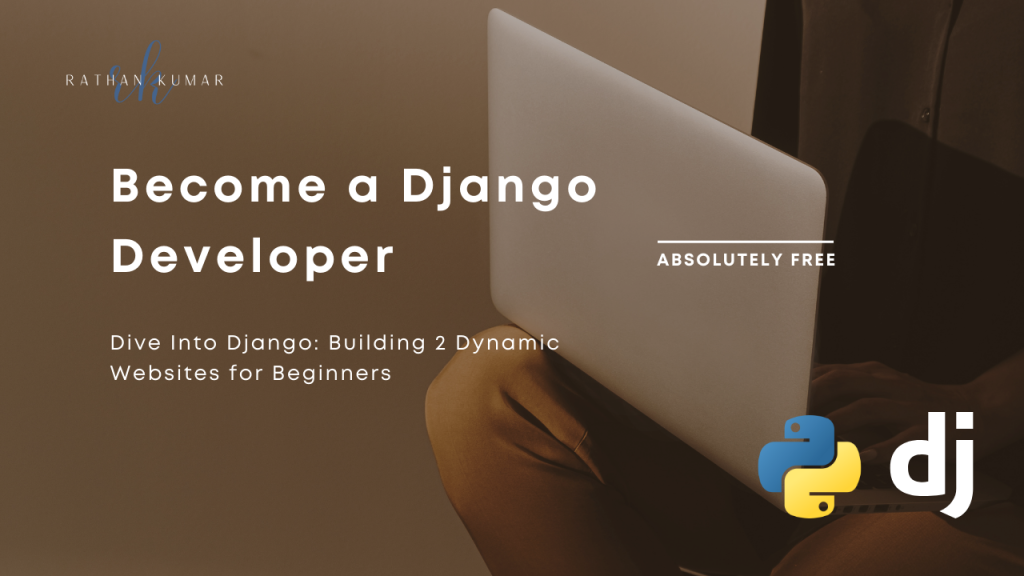
Learn Django by building practical projects for FREE
Conclusion:
Selecting the right backend web framework is crucial for the success of your web application. In 2023, these top 5 frameworks will likely continue to dominate the web development landscape. Django, Ruby on Rails, Express.js, Laravel, and Spring Boot offers powerful features, ease of use, and extensive community support. By choosing the right backend web framework that aligns with your project requirements, you can ensure a smooth development experience and deliver high-quality applications.
Remember to evaluate the specific needs of your project, consider factors such as scalability, performance, and community support, and stay updated with the latest developments in the web development world. Armed with this knowledge, you’ll be well-equipped to make an informed decision and build exceptional backend systems in 2023 and beyond.
